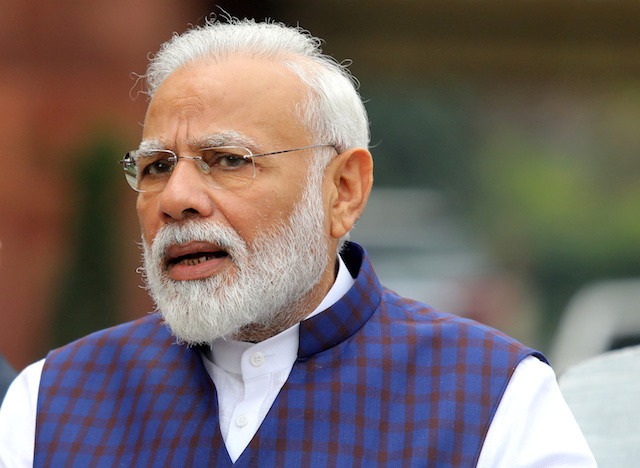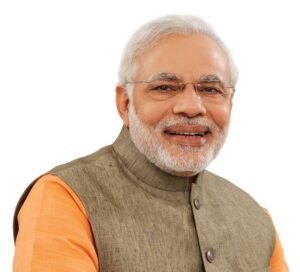In a significant move aimed at enhancing livestock health and economic sustainability, Prime Minister Narendra Modi launched a comprehensive programme to vaccinate 2 crore animals in Bihar. The initiative underscores the crucial role of animal health in bolstering agricultural productivity, rural livelihoods, and overall economic development. With approximately 85% of the rural households in Bihar dependent on agriculture and allied activities, ensuring the health and well-being of livestock becomes imperative for the state’s prosperity.
The Vaccination Programme:
The vaccination programme initiated by Prime Minister Modi targets a wide range of livestock, including cattle, buffaloes, sheep, and goats. It encompasses both preventive and therapeutic vaccinations against various diseases prevalent among these animals. Diseases such as foot-and-mouth disease (FMD), haemorrhagic septicaemia (HS), brucellosis, and anthrax pose significant threats to livestock health and productivity. By vaccinating against these diseases, the programme aims to minimize mortality rates, improve productivity, and enhance the quality of livestock products.
Importance of Livestock Health:
Livestock plays a crucial role in the agrarian economy of Bihar. Cattle and buffaloes are not only a source of milk and dairy products but also serve as draught animals for agricultural operations. Additionally, sheep and goats contribute to the state’s wool and meat industry. Any decline in livestock health not only affects the income of farmers but also disrupts the supply chain of essential commodities such as milk, meat, and leather.
Furthermore, healthy livestock are essential for sustainable agricultural practices. They provide organic manure, which enriches the soil and enhances crop yields. By investing in livestock health, the government aims to promote integrated farming systems that combine crop cultivation with animal husbandry, thereby ensuring optimal resource utilization and environmental sustainability.
Economic Impact:
The economic impact of the vaccination programme extends beyond the agricultural sector. Livestock rearing provides livelihood opportunities to millions of rural households in Bihar. By safeguarding the health of animals, the programme aims to protect the income and assets of farmers, particularly those belonging to marginalized communities.
Moreover, a healthy livestock population contributes to food security and nutrition. Milk and dairy products are rich sources of protein and essential nutrients, especially for children and pregnant women. By ensuring the availability of safe and nutritious animal products, the vaccination programme aligns with the government’s broader efforts to combat malnutrition and improve public health outcomes.
Implementation Strategy:
The successful implementation of the vaccination programme requires a multi-pronged strategy involving coordination between various stakeholders. Key components of the strategy include:
Capacity Building: Training and equipping veterinary professionals and para-veterinary staff to administer vaccines and provide healthcare services to livestock owners.
Awareness Campaigns:Conducting awareness campaigns to educate farmers about the importance of vaccination, proper animal care practices, and disease prevention measures.
Supply Chain Management: Ensuring the timely availability of vaccines, cold chain infrastructure for storage and transportation, and other necessary inputs.
Community Participation: Encouraging active participation of local communities, farmer groups, and self-help organizations in the vaccination drive through outreach programmes and community mobilization efforts.
Monitoring and Evaluation: Establishing mechanisms for monitoring vaccination coverage, assessing the impact of the programme on livestock health indicators, and making necessary course corrections based on feedback and evaluation.
Collaborative Efforts:
The success of the vaccination programme hinges on collaboration between the central government, state government, veterinary institutions, non-governmental organizations (NGOs), and other stakeholders. Partnerships with international agencies and development partners can also facilitate knowledge exchange, technical assistance, and financial support.
Furthermore, leveraging digital technologies such as mobile applications, geographic information systems (GIS), and telemedicine can enhance the efficiency and effectiveness of the vaccination programme. Digital platforms can streamline data collection, monitoring, and reporting, thereby improving decision-making and resource allocation.
Challenges and Solutions:
Despite its potential benefits, the vaccination programme faces several challenges that need to be addressed:
1. **Infrastructure Constraints:** Limited access to veterinary services, inadequate cold chain infrastructure, and logistical challenges in reaching remote rural areas pose significant hurdles to the vaccination campaign. Investing in infrastructure development and innovative delivery mechanisms such as mobile veterinary clinics can help overcome these challenges.
2. Financial Constraints:Financing the vaccination programme requires substantial resources, including funds for procuring vaccines, training personnel, and operational expenses. Mobilizing funds through budgetary allocations, public-private partnerships, and leveraging corporate social responsibility (CSR) initiatives can help bridge the financial gap.
3. Behavioral Barriers: Overcoming resistance or reluctance among farmers to adopt vaccination practices requires targeted communication strategies, building trust through community engagement, and addressing misconceptions or myths related to vaccines and their efficacy.
4. Data Management:Ensuring accurate and timely data collection, analysis, and reporting is essential for monitoring progress and making evidence-based decisions. Implementing robust information management systems and leveraging technology for real-time data capture can address data management challenges.
5. **Sustainability:** Ensuring the long-term sustainability of the vaccination programme requires integrating it into existing healthcare systems, strengthening veterinary services, and promoting a culture of preventive healthcare among livestock owners.
The launch of the vaccination programme by Prime Minister Modi underscores the government’s commitment to promoting livestock health, agricultural sustainability, and rural development in Bihar. By vaccinating 2 crore animals against prevalent diseases, the initiative aims to protect the livelihoods of farmers, enhance food security, and contribute to economic growth.
However, realizing the full potential of the programme requires concerted efforts from all stakeholders, including governments, civil society organizations, and the private sector. By addressing infrastructure constraints, mobilizing adequate resources, fostering community participation, and leveraging technology, the vaccination programme can become a catalyst for transforming the livestock sector in Bihar and beyond.
As the programme unfolds, it is essential to prioritize equity, inclusivity, and sustainability to ensure that the benefits of livestock health accrue to all sections of society, particularly smallholder farmers and marginalized communities. By harnessing the potential of animal husbandry as a driver of rural prosperity, Bihar can chart a path towards sustainable development and inclusive growth.
Through collaborative action and innovative solutions, the vision of a healthy and thriving livestock sector in Bihar can be realized, paving the way for a brighter and more prosperous future for the state’s rural communities.
ALSO READ : ARVIND KEJRIWAL ‘BID TO STOP ME FROM PARTICIPATING IN THE ELECTION’: DELHI HIGH COURT HEARING











